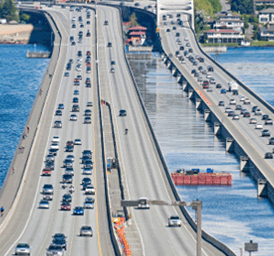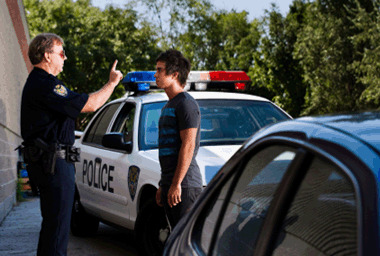Apr 18

What Speed Constitutes Reckless Driving in Washington?
Recently the Seattle P-I published an article about a motorcyclist who was arrested for allegedly driving 164 mph in Oregon. Many drivers call my office to ask me if traveling a certain speed, such as 90 or 100 mph, constitutes reckless driving in the State of Washington. The answer is that any speed beyond Washington's maximum speed limits could serve as prima facie evidence of reckless driving, which in Washington is a gross misdemeanor punishable by up to a year in jail and a $5,000 fine. The prosecuting authority would, however, have to prove the charge of reckless driving (which unlike a speeding infraction includes wanton and willful disregard of persons or property) to the criminal standard of beyond a reasonable doubt. So in Washington, if a driver is traveling 26 mph in a 25 mph zone, that person can be arrested (though it is unlikely and unusual). But if you're allegedly traveling 164 mph on a motorcycle, you are at high risk of getting arrested and charged with reckless driving. In most speeding cases, drivers are issued notices of infraction - that is, speeding tickets - which are civil infractions. The penalties for infractions do not include jail time, but the penalties do include monetary fines, higher insurance costs, and potential suspension or revocation of the driving privilege. But drivers in Washington should be aware that a police officer has the judgment call of citing a driver for reckless driving - and even arresting the driver on the spot - if the police officer believes the driver is disregarding the safety of persons or property. Getting stopped by the police can be a scary experience for many people, but luckily you have a lot of options and rights when you get stopped, cited, and even arrested. If you've received a citation and need help fighting it, give me a call, I can help.
UPDATE (NOVEMBER 9, 2008):
I realize the original post left out a few important points that I wish to clarify for my readers. While officers maintain the "judgment call" of arresting certain drivers for reckless driving and citing other drivers for speeding infractions, I want to be very clear that an arrest for reckless driving does not mean a driver who was allegedly speeding is automatically guilty because the officer has chosen to make an arrest for reckless driving. Although vehicular speed can in some cases amount to reckless driving, a driver can really no longer be lawfully convicted of reckless driving by evidence of speed alone where there is other evidence that a jury can weigh with regards to the offense, even though RCW 46.61.465 states that speeding shall be prima facie evidence of driving a vehicle in a reckless manner. I have updated the original post to include the words "wanton and willful disregard of persons or property" with regards to reckless driving in order to avoid any confusion between speeding and reckless driving.
In 1994, the United States Court of Appeals for the Ninth Circuit reviewed a King County conviction involving two vehicular assault charges. The Court reviewed Washington's reckless driving statute because driving a vehicle in a reckless manner was the predicate to the appellant's assault convictions. State appeals had been exhausted, a defendant's constitutional right violated, and the defendant-appellant remained in jail.
The Court stated:
But instruction number 7 isolated speed as the only circumstance needed to permit the jury to find reckless driving and thereby convict Schwendeman. The jury was told, in effect, that it could ignore all the other evidence, consider only the evidence of Schwendeman's speed, and if [the jury] found [appellant] was exceeding the speed limit, that was enough to convict him--not of speeding, but of reckless driving.
"By focusing the jury on the evidence of speed alone, the challenged instruction erroneously permitted the jury to" convict the appellant without allowing the jury to consider all of the other evidence.
In short, the Court differentiated between speeding and reckless driving, and the Court reversed the state courts and ordered respondent to release the appellant from the King County Jail unless appellant could be granted, within a reasonable time, a new trial.
The case is Schwendeman v. Wallenstein, 971 F.2d 313 (9th Cir. 1992).











